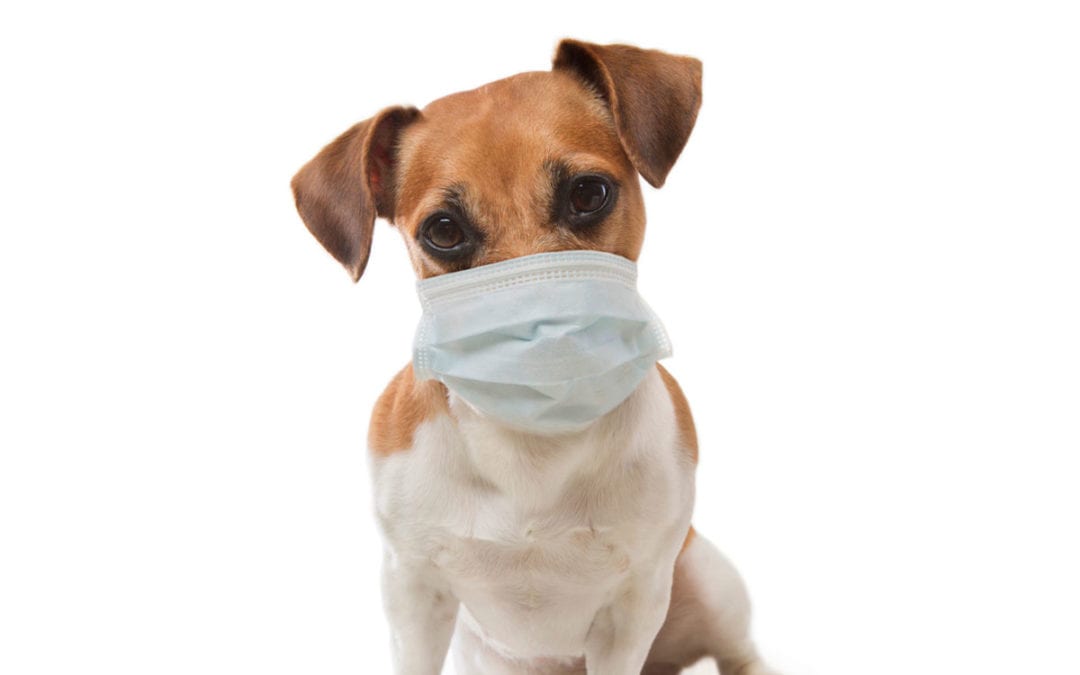The Coronavirus that has dominated the news lately, also known as COVID-19, causes flu-like disease in humans, and until recently was not thought to affect our pets until two dogs and a cat in Hong Kong did test positive for the disease as did their owners. These pets never had any clinical signs of the disease. More recently a cat in Belgium from a COVID-19 positive household tested positive and did show respiratory and GI signs. On April 5th reports came out about a tiger at the Bronx zoo testing positive for COVID-19 and showing signs of illness, along with six other tigers and lions. Then, on April 22nd, two house cats with mild respiratory signs tested positive for the novel coronavirus. These cats were likely exposed from their households or neighborhoods and are expected to recover. Before you panic about your pets, please read on.
At this time experts still believe that the risk of catching COVID-19 from a pet is extremely low and there is no evidence at this time that it is even possible for a pet to transmit the virus to a human. Unless pets have been exposed to a human known to be positive for COIVD-19 and are showing symptoms of the virus, it is not recommended that they get tested. Dogs are not the natural host for the virus and the virus is not able to replicate efficiently in dogs. Replication of the virus is necessary to make enough viral particles to actually infect another human or pet. Cats and ferrets are a little different. Their bodies will allow the virus to replicate some, but nowhere near as well as in humans. If a pet is exposed to a large amount of virus from their human companion there could possibly be enough exposure to the virus to cause some symptoms in cats and ferrets. At this time scientists know that some viral replication can take place inside cats and ferrets but it is still only theoretical that they could replicate enough to be able to infect humans. Even though it is unlikely that a pet could spread the virus, pets are still a surface, just like a door knob, that could be contaminated with virus and transmitted that way. Experts agree that the overwhelming concern for COVID-19 viral transmission is human to human. The following guidelines are recommended to keep you and your pets safe during this pandemic.
- Wash your hands with soap and water for 20 seconds before and after handling a pet, or before eating, before touching your face and after touching your face. Use hand sanitizer if soap and water are not available.
- If you are sick with flu-like symptoms avoid contact with pets and have a healthy member of the household care for pets. If you must care for a pet while sick, wash hands properly before and after contact and wear an appropriate face mask.
- If you are sick with flu-like symptoms avoid contact with others and remain home for 24 hours after being fever-free.
- Continue to follow all social distancing guidelines and preventive measures from the CDC. https://www.cdc.gov/coronavirus/2019-ncov/index.html
Worldwide, health experts are working hard to fight the spread of Coronavirus. As new information becomes available we will keep you posted.

